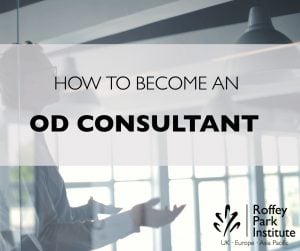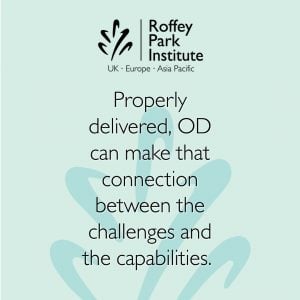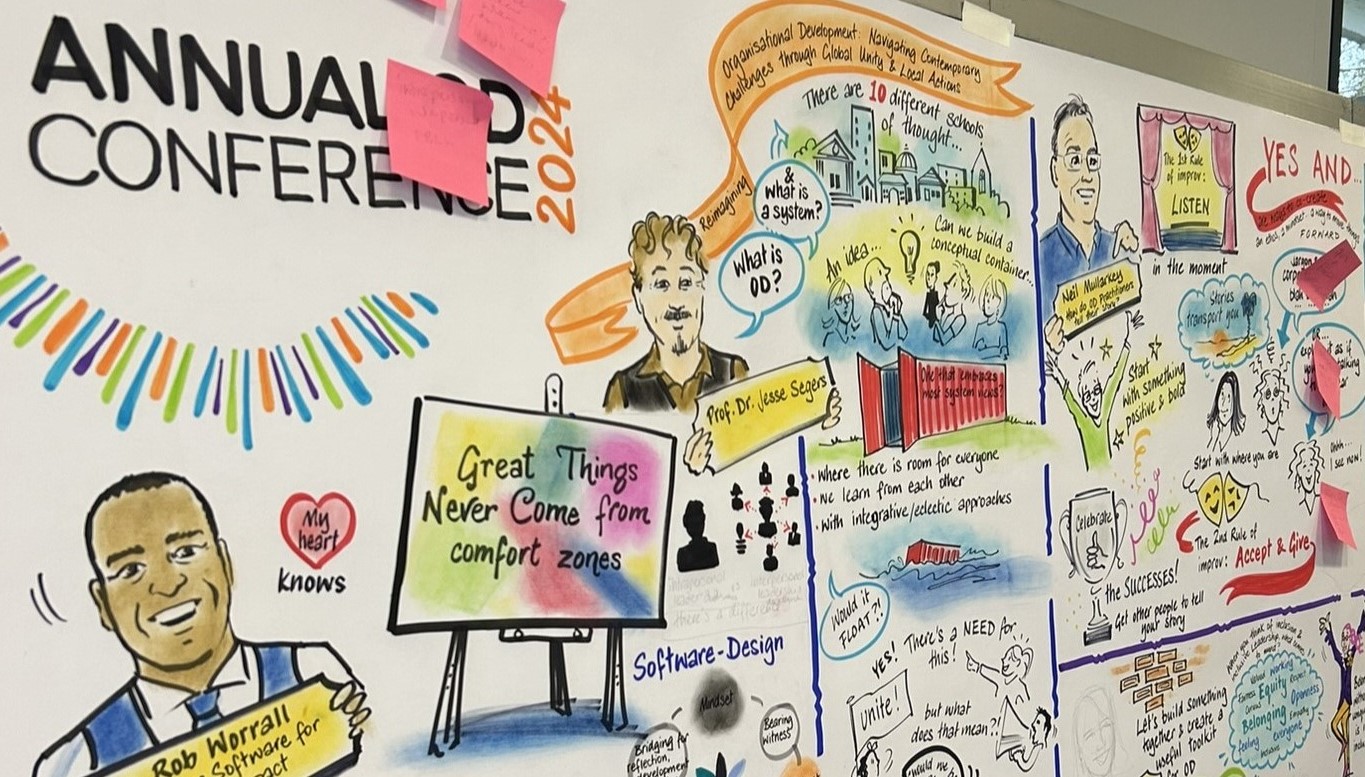How To Become An Organisational Development Consultant

You may have noticed that large parts of the economy, and a great number of organisations, have undergone quite a number of ‘challenges’ recently. There have been ‘things’’ going on.
The pandemic is one thing, but the economic effects of lockdown and the, likely, looming recession means that only the companies that succeed and survive will be the ones which adapt and react in the right ways, and make the optimum decisions on their next steps.
That opens the way for those who understand organisational development, or want to train as an organisational development consultant, to step forward. The people who ‘get’ OD are the people who can have the oversight of an organisation’s position, status and market and point that business in the right direction.
Organisational development techniques look at an organisation in a holistic manner – understanding both it’s situation and the skills, capacity and adaptability of the workforce within it. Those who deliver OD can align structural, cultural and strategic realities to the external pressures of the business climate.
Properly delivered, OD can make that connection between the challenges and the capabilities. In ‘traditional’ organisations, that’s the job of the leadership – but too often it is delivered by those who have the authority but not the expertise – they are often too close to the problems and the people to be able to strategise effectively. That’s where an OD consultant comes in, looking at a range of issues:
- Changes to the structure, strategy and processes of an organisation
- A review of the skills, capability and capacity of the people within it
- Using behavioural science to change how an organisation and its workforce behaves
- Looking at how to improve the output – greater efficiency, lower cost, higher quality
- Making the changes sustainable
Organisational Development Techniques

But the key driver of OD, and the reason why it’s often associated with the human resources team of a company, is that is very much people-centred. Indeed, it emerged, from the field of human relations in the 1930s, via Kurt Lewin’s studies of group dynamics, but it became ‘a thing’ in the 1950s when Richard Beckhard defined it as ‘planned. organisation wide, managed-from-the-top processes which increase organisational effectiveness, via behavioural science’.
Definitions may have varied between OD practitioners since, but the commonality is that sense of the workforce and their behaviours and habits which makes this different to any other form of workflow change. The idea is to change an organisation, but to do so by maximising the potential of the workforce and building the strategies, structures and processes around them in order to do so. That embeds the change, because the team feel a sense of ownership and understanding. That buy-in drives success.
There’s a large dollop of behavioural science in there – the ability to read and understand people and to know what will trigger the willingness to ‘do better’.
How to become an organisational development consultant
So how do you get there? How do you get to navigate the spaces between people, skills, strategy and delivery?
It’s a role which rewards experience as much as theory, although an academic qualification in people and organisational development can help. Whatever the route, practising OD consultants will be as much in demand as those who have mastered the theory – understanding human behaviour is both an academic skill and a lived experience.
Supplementing that workplace experience with formal training in organisational design with implementation in your own company where you can help drive purpose, and strategy, and the skills and the will to implement amongst the employees.

Do that, and you’ll quickly become integral to your company’s future, because it’s not a one-off event. Recent history has taught us that ‘events’, and seismic ones at that, just keep on happening. So when a company needs to adapt – to new markets, to digital disruption, to Brexit, to Covid-19 and whatever else the future wants to throw at us, OD consultants or their in-house OD practitioner counterparts are the one who are driving the future.
Moving from in-house to OD consultancy is a matter of nerve. Driving the sort of fluid and agile change that OD can deliver in an organisation will help develop the confidence to deliver from others and can give the beginnings of a track record of transformation which can become a calling card.
Understanding what value you added to that process is vital to selling it to another client. Constantly recording your progress and the techniques and processes which both delivered and hampered the project will help you hone your service to others.
If you want to find yourself in OD consultancy, that will often mean your first clients are very familiar to you – taking as clients the company you are leaving as an employee or the suppliers, clients and stakeholders in that business. Most of your new business will be from old acquaintances. The best step to growing the business from there is success, word of mouth and the authority that experience and knowledge of structure and human behaviour within it can give. Formalised organisational development courses can help you understand the wider context in which your experience exists – effectively, giving you the experience of others to add layers to your wisdom and breadth to your product.
And it’s that service, that holistic wisdom, which will set an organisation on its road to survival and ultimate success. Whatever the world throws at us.





